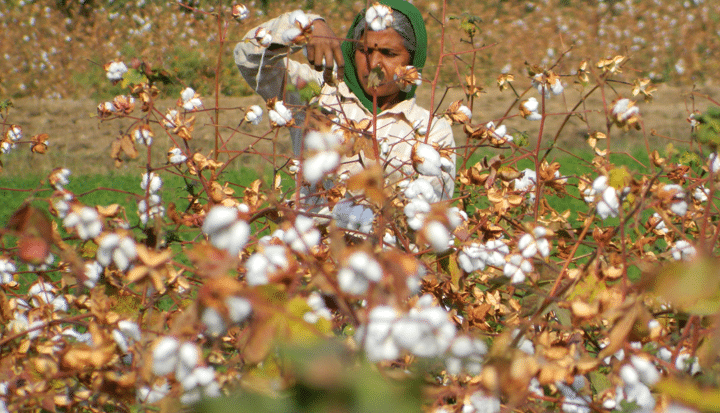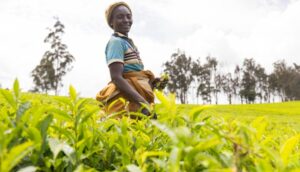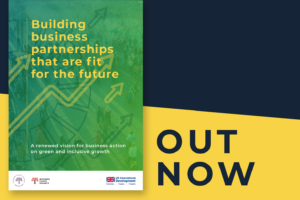As we bring together buyers and suppliers, manufacturers and NGOs to discuss what is needed for a sustainable supply of cotton, it seems clear we need to address the economic equation of supply and demand. Experience from other sectors suggests that the business proposition for procuring ethically and sustainably sourced cotton will be driven by two imperatives: firstly, the need for a sustainable supply of raw materials to make garments and products, and, secondly, demand for ethically sourced clothing from retailers and their consumers.
Sustainable supply
Brands and manufacturers need to have a secure supply of cotton to make their products. But how do they trace a supply chain that is constantly changing and where both ends of the value chain have options to buy or grow another raw materials?
In China, for example, cotton farmers now find it can be more profitable to grow sunflowers than cotton. Other crops are more established, such as cocoa or apples, but every year cotton farmers can decide which crop to grow and they may not always chose to grow cotton. This therefore can change the availability of the crop, including sustainably-grown cotton.
Likewise, manufacturers and retailers have a choice of cotton or alternatives such as polyester. With the falling price of oil, polyester may well become a cheaper option.
For procurement there is a tension between flexible sourcing and vertical integration. The challenge for suppliers is to ensure that the right fibre is available when needed and at a competitive cost. There is also a need for greater accountability and commitment to suppliers. To increase the demand for sustainably grown cotton to the point where it becomes a profitable crop for farmers to grow, ethically sourced cotton has to become desirable.
Consumer demand
Whilst consumers may state a preference for ethical sourced cotton, in reality they don’t go to the shops to buy cotton, they go to buy garments. How they are made is often a secondary concern after price and style.
What may change this is the view of the millennial generation – in their 20s and early 30s – who are more aware than their parents of the need for sustainably and ethically sourced products, and are more willing to pay for it. Retailers have a dual role to educate their customers on the one hand and to provide what they want on the other. While millennials are already a potent force, they will truly come into their own by 2020, when, according to Accenture, their spending in the United States will grow to $1.4 trillion annually and represent 30% of total retail sales.
The fact that millennials also buy more clothing than previous generations means this consumer group could cause the ethical shift in fashion buying that the previous generation caused with food buying, but only if the other parts of the value chain – the farmers, mills, brands and retailers – are up to speed too. Just as Fairtrade and ethical sourcing certification have become necessary labels for food manufacturers, clothing brands will need to show consumers that they are sourcing sustainably. How much this would drive increased brand trust rather than brand share is an interesting question.
As stakeholders invested in creating a sustainable cotton supply, we have to find the business case for all in the supply chain from farmer to retailer, to make sustainable choices a compelling business proposition.
To help get to the core of this issue, CottonConnect, together with Innovation Forum, is bringing together experienced executives around a focused agenda at The Sustainable and Ethical Cotton Sourcing Forum in London on 16th and 17th March 2015. For more information please visit Sustainable and Ethical Cotton Sourcing Forum.










